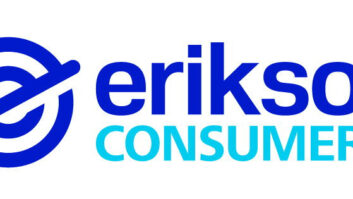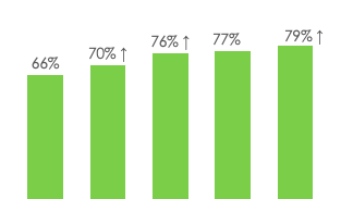Accenture has identified five great growth markets in the consumer electronics industry. Consumer electronics companies would be likely to boost revenues and profits and accelerate towards high performance by selecting at least a few of these — and perhaps all of them. These opportunities are timely, focused and real.
These opportunities emerged from Accenture’s new global online survey results of 16,000 Internet-enabled consumers in four emerging markets (China, India, Malaysia and Singapore) and four mature markets (the United States, Japan, Germany and France). The survey identified current and future spending and usage patterns for 19 different consumer technologies, including smartphones, high-definition TVs and computers.
5 Great Growth Opportunities
No. 1: Emerging countries. Compared with consumers in mature countries, consumers in emerging countries are buying and using more consumer technology and services. They are also more likely to take full advantage of the services and applications available on any one technology. For example, consumers in emerging markets are:
- more than 2.5 times as likely to buy a smartphone during the next year (52 percent vs. 20 percent);
- twice as likely to have bought a computer in the past year (40 percent vs. 20 percent);
- more than twice as likely to have at least occasionally played video games on handheld devices (58 percent vs. 28 percent); and
- nearly twice as likely to have at least occasionally connected with people on social networks (69 percent vs. 38 percent).
No. 2: Consumer technology products marketed as “environmentally friendly.” Even during the economic downturn, our research found that 67 percent of all survey respondents would pay a premium for a product marketed as environmentally friendly. This feedback stands out particularly because these same consumers, in the same survey, said price was their No. 1 decision-making criteria for consumer technology. So environmentally friendly devices trump prices in the minds of most consumers. This willingness was particularly prevalent among emerging market consumers where 84 percent said they would pay a premium for such a product; 34 percentage points higher than mature market participants. The widest disparity surfaced between China and the United States. Virtually all of Chinese (98 percent) consumers, compared with only 43 percent of consumers in the United States, reported such willingness.
No. 3: Build into products the perception of market-leading innovation. Innovation is important to all consumers queried, especially in emerging countries. Ninety-four percent of respondents in China, India, Malaysia and Singapore, and 82 percent of mature market respondents, said it was important to them that the brands they buy are perceived as the most innovative of technologies. This is especially important in India where innovation ranks second only to personal research as the top decision-making factor for buying technology.
No. 4: Smartphones, Web-enabled mobile devices, netbooks and e-books in emerging markets. In the smartphone arena, 85 percent of global respondents spent money on consumer technologies in the past year, mostly on mobile or smartphones (49 percent). This is undoubtedly one of the fastest growing consumer electronics markets. In the Web-enabled mobile device market, consumers in emerging markets use much more of a product’s applications than mature country consumers. Think of it this way: Emerging nation consumers view their mobile devices more as open canvases? for creating more applications, services and functions than mature nation consumers. Consider this: Web-enabled mobile devices are owned by 42 percent of emerging country respondents versus only 17 percent of mature country respondents.
China has arisen as a prime business mecca for Web-enabled mobile devices. Fifty-nine percent of respondents own Web-enabled mobile devices — more than eight times more than the 7 percent of Japanese respondents. China also has accelerated ahead of mature countries in the netbook and e-book market. What’s more, Chinese consumers ranked first among all eight countries surveyed in their use of leading edge consumer technologies. For example, 17 percent of Chinese respondents own an e-book, a far greater percentage than other countries such as the United States (5 percent), Germany (2 percent) and France (1 percent).
No. 5: Social networking. The rapid growth in social networking has driven rapid growth in smartphones, and vice versa. In fact, social networking is by far the No. 1 application on smartphones. The growth rates for social networking are almost stunning over the past few years factoring in the tough economic conditions. Accenture’s new research found that from 2008 to 2009, the percentage of all U.S. consumers using social-networking sites almost doubled from 43 percent to 75 percent. This big jump far exceeded the growth rate from 2007 to 2008, when the percentage rose from 31 percent to 43 percent.
Final Thoughts
To capitalize on these opportunities, consumer electronics companies need to fully appreciate that this industry is now undergoing transformational, paradigm-shifting changes. At the heart of these changes is the reality that the products and technologies are no longer big differentiators. Providing better, faster and easier customer services and applications are where many of the biggest market opportunities are. This will true for the next several years. In this new business environment, consumer electronics companies need to focus on improving the quality of the outcome of the customer’s experience when using a consumer product or technology. What the technology does, how it’s made, what technical specifications it possesses, is not a primary concern to the vast majority of concerns. Instead, they care about gathering answers to these kinds of questions: Is this product environmentally friendly? Is it perceived as leading-edge in terms of innovation? Can my smartphone deliver me Web-enabled services and applications and, if so, how many different ways can I socially network on my smartphone?
These are the critical questions that need to be answered. And these are the fastest and most exciting pathways to achieving growth through innovation.
Jean-Laurent Poitou is the global managing director of the Electronics & High-Tech business group at Accenture, the global management consulting, technology services and outsourcing company. He can be reached at [email protected].













